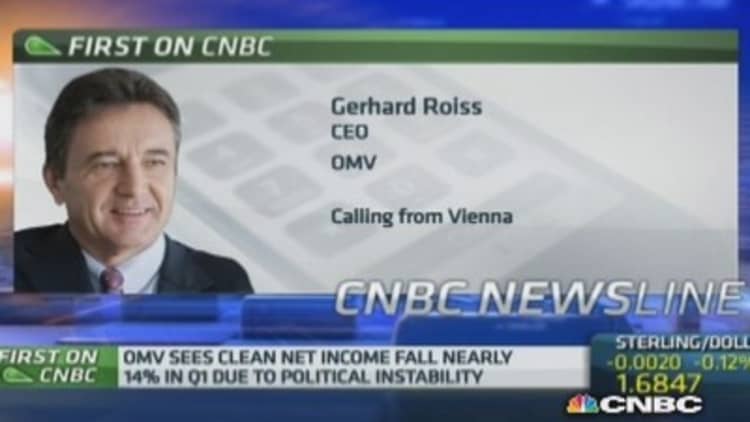The United States aims to buy gasoline in end-July or early August to build emergency stocks to cover the hurricane season, using the $495 million from a strategic oil reserve test sale, the top U.S. energy official said on Tuesday.
U.S. Energy Secretary Ernest Moniz told Reuters in an interview that the first test sale from the nation's Strategic Petroleum Reserve since 1990 "went very well," and that half of the 5 million barrels of crude that was sold has been drawn.
Read More
The U.S. Energy Department earlier this month unveiled a plan to create a million-barrel gasoline reserve in the Northeast, a reaction to the aftermath of Superstorm Sandy in 2012 when motorists were left without fuel, exposing vulnerabilities in the country's fuel distribution network.
"We want to get, of course, as much of the hurricane season covered as possible. So, we are looking at mid-summer to have it in place,'' Moniz said, identifying that as end-July or early August.
Under the $200 million emergency reserve plan, two sites will each store 500,000 barrels of gasoline by late summer, one near New York Harbor and one in the New England region.
Read MoreEast Ukraine vote spells fresh trouble for markets
Moniz who was in Seoul this week for a conference added that once the precise sites have been chosen, detailed distribution plans will be studied.
The U.S. energy department surprised oil markets in March when it said it would hold its first test sale of crude oil from the Strategic Petroleum Reserve since 1990.

The sale was held to help assess the government's ability to transport oil from the reserve located in Louisiana and Texas to local refiners as the domestic shale oil boom has resulted in an upheaval in energy logistics.
"We had the sale to test the infrastructure because in an emergency we have to know that we are able to draw down. And the underlying issue is that with our new oil production and with it coming from different places, some of the infrastructures has changed,'' Moniz said.
Asked if there was any discussion with Asian nations including South Korea over possible U.S. crude exports, Moniz said: "It was raised by our Korean colleagues, but (it was) not a very detailed discussion.''
Read MoreOwning a car is now cheaper: AAA
The U.S. government currently prohibits exports of crude, with a few exceptions including to Canada, but it is considering allowing sales to overseas markets as domestic stockpiles hit record highs.
On the possible crude exports, Moniz in a separate press briefing earlier on Tuesday cited the U.S. president's counselor John Podesta as saying the issue is under consideration.
"I want to remind you that we are still a major importer of oil. So, it is true that we are producing a lot more oil, and frankly we expect to be close to 10 million barrels per day in crude oil production within a few years.''
In the briefing he added that multiple agencies are studying possible crude exports but the commerce department has the final responsibility for the decision.
Asked if the United States plans to ask the International Energy Agency to make a release from its strategic reserves if Russian oil exports are disrupted, he told Reuters there was no plan at the moment.
Read MoreHigh oil prices will boost renewables: Pro
"Right now, we don't see disruption in the oil market ... the markets have been very steady throughout the whole process,'' Moniz said.
Tensions over Russia's military intervention on Ukraine's Crimean peninsula and its aftermath in eastern Ukraine have been rattling oil markets for the last couple of months.
Brent futures have been holding near $108 a barrel, slightly below a peak of $112.39 on March 3, the highest in more than five months.
—By Reuters

